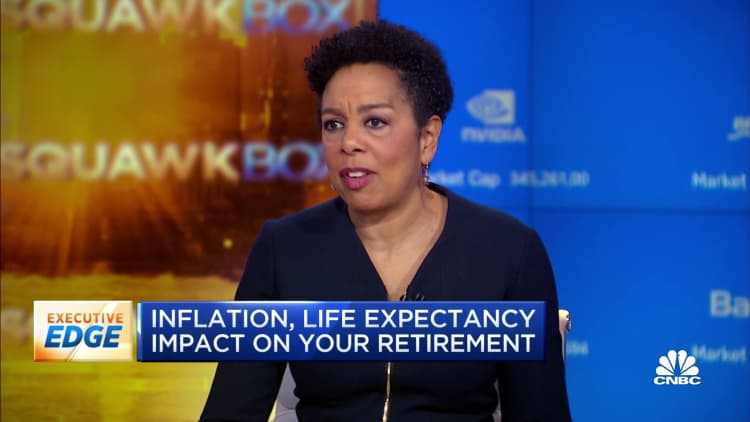Moving in retirement can unlock a big pot of money to help fund those post-work years.
In 2019, the typical homeowner age 60 or older who sold their home and relocated to a cheaper housing market accessed nearly $100,000 in home equity, according to new research published by Vanguard Group.
The typical person at the top 10th percentile made even more money — $347,000 — by using the “retire and relocate” strategy, Vanguard found.
A quarter of all U.S. retirees have “the potential to shore up their retirement funding” by moving to a cheaper market, the report estimates.
While the maneuver isn’t right for everyone, it can provide a financial cushion to many retirees, especially those concerned abut running out of money in old age.
The average homeowner age 60 and older has $223,000 in retirement savings, the report noted — a sum that may not be adequate to fund a retirement that could last three or more decades.
“It’s definitely part of the conversation when you look at overall wealth planning,” said Lauren Wybar, a certified financial planner and senior wealth advisor at Vanguard. Real estate “is an arm of their nest egg.”
Homeowners who relocate generally find the cost of living is lower in their new area, meaning they may get the added benefit of reducing their overall expenses, Wybar said.

This isn’t necessarily a strategy Americans should use as the linchpin of their retirement savings strategy, however.
The amount of money a retiree ultimately gets from selling their home and moving is impossible to gauge due to all the unknowns — among them, how the value of one’s primary residence will appreciate or depreciate, and likewise for prospective housing markets around the country.
Retirees moving from a primary residence on the West Coast (Washington state, Oregon and California) and in the Northeast are generally in the best position to unlock home equity when they retire and relocate, due to the relatively high home prices in those areas, Vanguard found. Those from Nevada, Utah, Colorado, Arizona and Florida are also “well-positioned,” according to the report.
Conversely, states in the Midwest (like South Dakota and Nebraska) and South (Mississippi and Alabama) have weaker housing markets, Vanguard noted. If retirees move elsewhere, they may lose instead of gain money on the transaction.
Keep other financial factors in mind
Witthaya Prasongsin | Moment | Getty Images
Its important to gauge other financial factors, too, such as transportation costs; taxes (property, income and estate); and home insurance costs.
If you sell a $1 million home in high-cost areas like Connecticut, New York and California, you can move to some states and get roughly the same house for $500,000, said Ted Jenkin, a CFP based in Atlanta.
Plus, your real estate taxes are often lower, as are costs for home insurance, utilities and other property maintenance, said Jenkin, CEO of Oxygen Financial and a member of CNBC’s Advisor Council.
“[However], if you’re thinking of moving from a major metro area in one state to another, and your housing costs will be half, in general that’s not going to be the case,” Jenkin said.
There are also ways to tap home equity without moving — like a reverse mortgage or home equity line of credit, for example.
But the decision isn’t purely financial, Jenkin said.
It’s important for retirees to consider their social relationships and their pursuits in retirement. For example: Would they be happy if they moved farther from family and friends? Would they be happy moving somewhere if it meant less desirable weather? Do they envision playing golf all year or skiing? If your health worsens, who will be the one to take care of you or even to change a lightbulb?
Before buying a home in a new area, Jenkin recommends retirees rent for one, two or three months to get a sense of whether they’d enjoy living there. Just because someone enjoyed visiting a place for a week doesn’t mean they’d enjoy a permanent residency there, he said.

